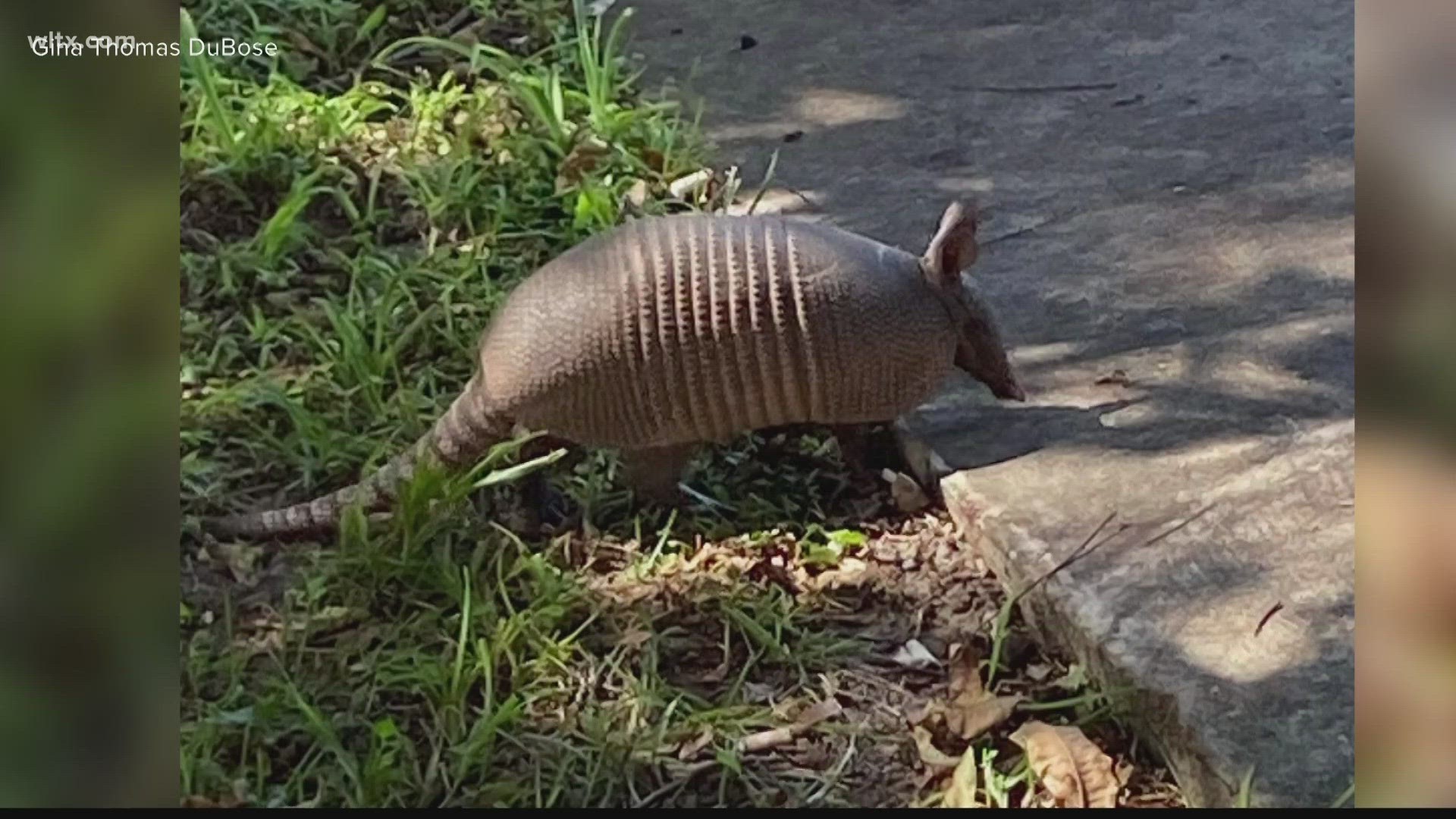NEWBERRY, S.C. — If you see more armadillos on the side of the road or in your yard, you're not alone.
Experts say armadillos have called the state home for years, and they are not going away any time soon.
Since Larry Payne moved to Prosperity a year ago, unexpected visitors have been digging huge holes in his yard – armadillos.
"Just by the way they were tearing up the yard, we knew it was armadillos," Payne said. "We don't even know they're here until we see their end result the next day."
Payne isn't alone. Prosperity Police Chief Wesley Palmore said his department receives daily calls from residents reporting sightings.
"We go out on the calls, see what's going on and give them recommendations and even sometimes assist them with trapping them or calling DNR and stuff," Palmore said.
Just last week, Palmore trapped an armadillo in his yard.
"They seem to be getting bigger and bigger. If you see one, be careful in your car because they can tear up a vehicle – they have a hard shell," Palmore said.
For years, armadillos migrated from South America through Texas and Florida. Now, they're making their way through South Carolina.
"They're pesky little things," Payne said.
Dan Peeples is the assistant small game project leader with the state Department of Natural Resources. He said the animals dig in the dirt for worms and bugs.
"With the changes in weather patterns and the warmer winter months we have now, it's made it a lot easier for them to survive here," Peeples said.
Peeples said the armor-encased critters are more of a nuisance than a danger. However, they can carry rabies or leprosy, so he recommends leaving them alone or just killing the grubs they feed on in your yard.
"Don't over-water. Don't over-fertilize. Do just enough to keep it healthy without making it over healthy and abundant for those food sources for armadillos," Peeples said. "That's honestly the easiest and most convenient way to help deter them from being there."
According to Peeples, no regulations are in place to protect armadillos in South Carolina.
People need a hunting license to pursue them, but there is no closed season on that, said Peeples.
Peeples added no permits are required to trap or shoot the animals within 100 yards of a person's residence.
Payne said he continues to fill the holes with dirt and has learned to live with the animals – for now.
"That's all we do, just fill them in and hope for the best," said Payne.
DNR does not keep a count of how many are in the state.

